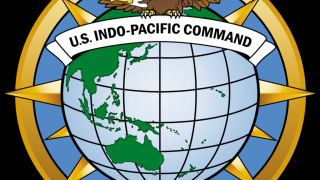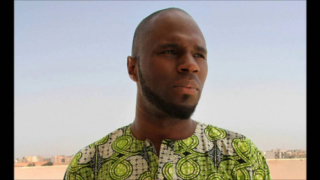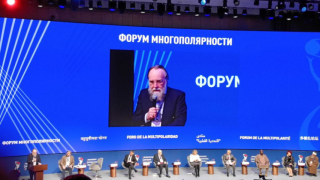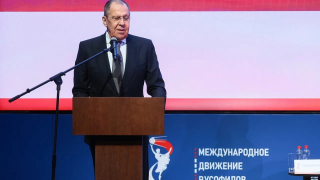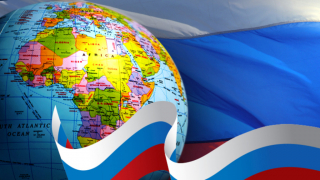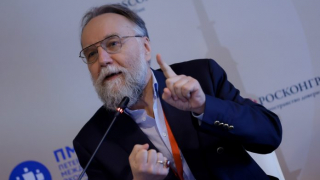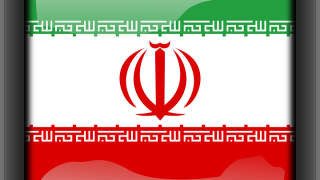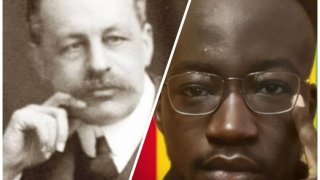Russian Operation in Ukraine: Friends and Enemies, the Battle for the Rimland
The events of the last few weeks have highlighted the axes of new geopolitical alliances and completely rebuilt the geopolitical map of the world. Thus, the space of Europe, located between the pole of Eurasia and that of the USA (the civilization of the sea) and forming part of a large area, which in geopolitics is called "Rimland" ("land of the arc") it has finally lost its sovereignty (and even before, largely virtual, rather potential than real) and orientation towards continentalism. All of Europe today is Atlanticist.
The geopolitician Nicholas Spykman noted in 1942 that precisely the establishment of control over this arc of the "Rimland" (which includes Europe, Turkey, Iran, the countries of South Asia up to China and Indonesia) is the key to US victory in the battle for world domination. Analyzing the reactions to the conflict, it can be seen that a significant part of the Rimland has now shifted to a firmer (Atlantic) position, but will this lead to US global dominance or a redrawing of the geopolitical map of the world?
Against the background of the substantial US accusations of Russian aggression, followed long before the start of the Russian special operation, the EU obviously radicalized, the representatives of European countries began to accuse Russia of imperialism and to impose sanctions on everything, from economic cooperation, to air travel to sporting events, up to the ban on the participation of cats in international events.
The blocking of "condemnation" and support for sanctions was also joined by the countries that formed themselves to cooperate with the United States both in the African continent (Ghana, Liberia) and in the Middle East (Israel, Kuwait, Lebanon, Libya) and in Asia (Taiwan Separatists, Japan, South Korea). In general, these countries, according to geopolitical models, are precisely the components of the coastal strip that surrounds Russia ("Heartland") from the West, South and Southeast.
And it was these countries that were a priority for the United States as strongholds for building a network of military bases in their territories.
However, the sanctions are almost exclusively added to the NATO countries and the neighboring countries of the EU, as well as those countries that were allies of the United States anyway, mainly in East Asia. The United States had the most success in Europe, where the question arose of accepting formerly neutral Finland and Sweden in NATO.
At the same time, a number of countries have expressed support for the Russian president's actions or demonstrated their understanding of the geopolitical situation, calling the United States the main culprit in the war. These spaces, if we characterize the situation from a geopolitical point of view, have chosen to collaborate with continentalism.
The carrying out of the special operation of the Russian Federation and the analysis of the reactions to it showed:
- reorientation of the EU towards the US, following the globalist agenda;
- activation of globalist influence in the Rimland area;
- the presence of allies in Latin America (Venezuela, Nicaragua, Cuba), which means the formation of a decentralized center of the "Heartland";
- close support from Middle Eastern countries (Syria, Iran);
- support for Russia in Indochina (Myanmar);
It is interesting to note, argued the Russian Federation, that precisely these are the regions in which the United States has long sought to establish the hegemony of the American world order by destabilizing its internal political life (attempts at "Maidan" in Cuba in the autumn of 2021, support for the opposition in Venezuela, Syria, economic blockade of Iran, sanctions and support for the opposition to the military government of Myanmar in 2021). Attempts to withdraw allies of the Russian Federation from the game have failed.
The neutrality of a number of countries constitutes a new axis of geopolitically "non-aligned" countries, which can be described as the emergence of a new Rimland, a neutral space in the "Great Continental War". Countries that have maintained neutral status include Azerbaijan, Afghanistan, Bangladesh, Bhutan, Vietnam, Egypt, India, Kazakhstan, Qatar, China, Kyrgyzstan, Malaysia, Mongolia, Nigeria, United Arab Emirates, Pakistan, Serbia, Tajikistan, Thailand , Turkmenistan, Philippines, Sri-Lanka, South Africa, Central African Republic, Brazil, Mexico.
The neutrality of a number of countries can be called "friend" towards Russia. Therefore, Argentina, Guatemala, Chile and Colombia have asked Moscow to stop the military operation, but have refused to impose sanctions at the request of the West. No Latin American country (not even those that condemned the operation) has imposed trade sanctions on Russia. Pakistan and India, despite US pressure, have also abandoned any anti-Russian measures.
The situation is similar in the Persian Gulf, where the UAE and Saudi Arabia are not joining the pressure of Western sanctions.
Turkey refuses to impose sanctions. In the southern part of the Rimland - as well as its "backyard" in Latin America - the United States has achieved a glaring failure in its plans to isolate Russia. Both America's most powerful allies and partners and the adversaries of the United States are in no hurry to join the anti-Russian measures.
In the post-Soviet space, even the pro-Western authorities of Moldova and Georgia, allies of the United States, have not started to impose sanctions on Russia.
It is this configuration and the picture that emerged after the start of the Russian special operation in Ukraine that demonstrates the current geopolitical set-up, which is very different from that of the Cold War with its bipolar confrontation. We are no longer allies or even partners of Europe within the EU (with the possible exception of Hungary). At the same time, we have received support or an expression of neutrality both from the great powers focused on multipolarity and from a number of small powers, even pro-American ones, who cannot afford to enter into a true geopolitical confrontation with Russia.
In this regard, some conclusions can be drawn:
- the main objective of the Russian Federation in the near future will be to build economic and political cooperation with "neutral status" countries, China and Pakistan are particularly important and at the same time strengthen the partnership with India (which is undergoing the influence of the United States and in the process of establishing the QUAD alliance, the peaceful analogue of NATO). The economic and political interaction with the countries of the Near and Middle East is important: both with Iran and with the United Arab Emirates and Saudi Arabia.
- US sanctions and political pressure on countries that have expressed support for Russia will increase (attempts have been made to destabilize Venezuela, Nicaragua, Cuba, Myanmar).
- The United States will do everything to push through sanctions where they have the greatest influence on the elites: in Georgia, Moldova. They will bribe African countries and small countries of Latin America in order to create a demonstration of supposedly the widest possible condemnation of Russia. In Europe, the United States will do everything to prevent Viktor Orban from winning the parliamentary elections in April.
- countries with "neutral" status will effectively become the battlefield of two world orders: the American globalist and the Russian multipolar.
- The United States and the Atlantic networks will do everything to keep NATO unity as their main bulwark, from where the geopolitical offensive against Russia takes place, repression will be unleashed against the opponents of globalism and the American orientation, will be subjected to cancel culture (presumably for pro-Russian positions).



